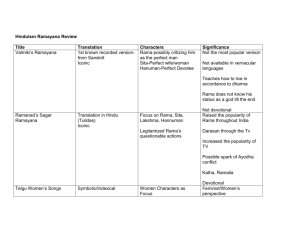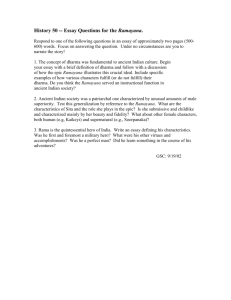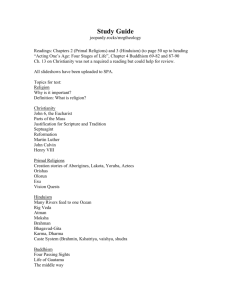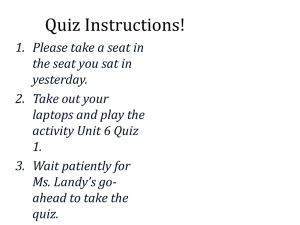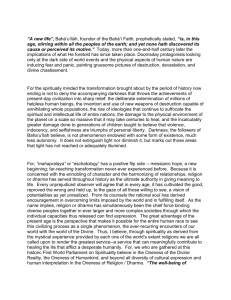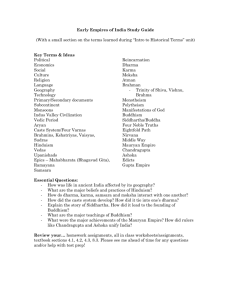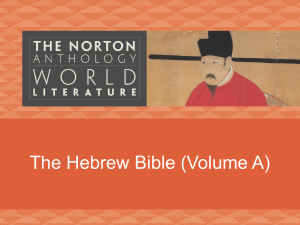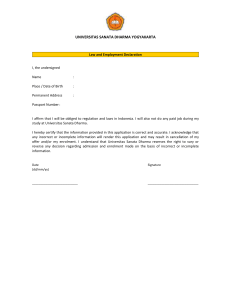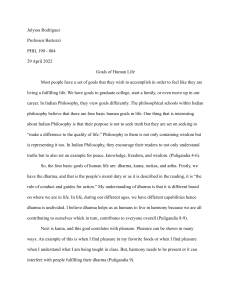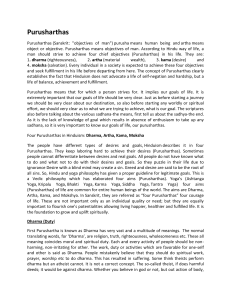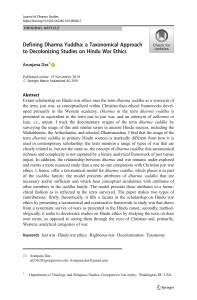The Ramayana (Volume A)
advertisement
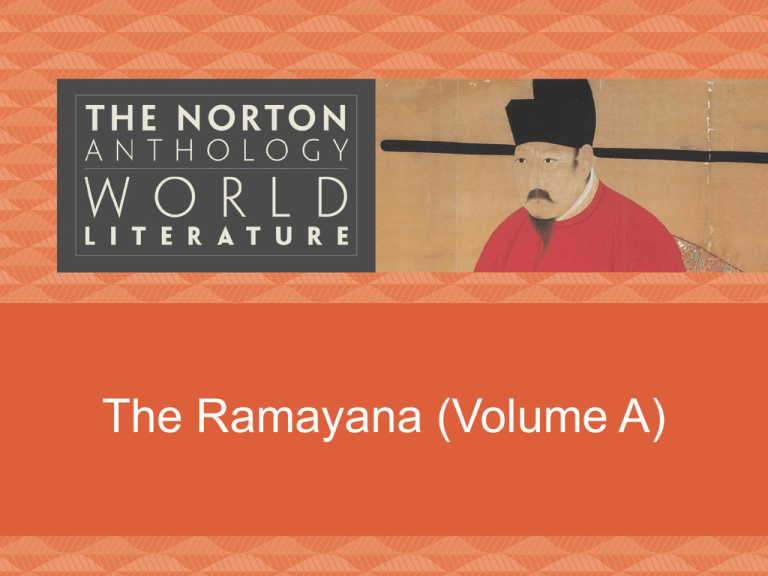
The Ramayana (Volume A) Valmiki Hinduism • • • • • the Vedas salvation karma practice of dharma theodicy “Rama’s rule of kingdom was characterized by the effortless and spontaneous prevalence of dharma. People were free from fear of any sort. There were no widows in the land: people were not molested by beasts and snakes, nor did they suffer from disease. There was no theft, no robbery, nor any violence” (1233). Elements of Epic Writing • • • • • • • length content: historic, mythic motifs divine intervention heroic flaw orality and performance, writing language Form • • • • sloka couplets books (kāndas) chapters (sargas) “This holy epic Ramayana composed by the sage Valmiki, promotes dharma, fame, long life and in the case of a king, victory. He who listens to it is always freed from all sins. He who desires sons gets them, and he who desires wealth becomes wealthy, by listening to the story of the coronation of Rama” (p. 1234). Society • caste society (priests, warriors, traders, servants) • arranged marriages • moral codes (dharma) “The brahmanas had got everything ready for the coronation ceremonies. Gold pots of holy water from all the sacred rivers, most of them gathered at their very source, were ready. All the paraphernalia like the umbrella, chowries, an elephant and a white horse, were ready, too” (p. 1176). Ayodhā Dharma • “The deity presiding over the ocean wishes to return the service as a token of gratitude: thus to show one’s gratitude is the eternal dharma” (p. 1208). • “The commands of the guru, the king and one’s aged father, whether uttered in anger, cheerfully, or out of lust, should be obeyed by one who is not of despicable behavior, with a view to the promotion of dharma” (p. 1179). Chariot: Vimana • “measuring out” or “traversing” • flying palace • chariot of the gods Anthropomorphosis Women Sita Rama “He is the protector of people of different occupations, of good conduct, and he himself adheres to good conduct. He is mighty, friendly, well-versed in scirptures and devoted to the holy ones. He is endowed with all the characteristics of the best among men: broad shoulders, strong arms, powerful neck, lovely face…the four pairs of his limbs are symmetrical” (p. 1224). Ravana “He is known as Ravana because he makes his enemies cry. It is a great honor to accept his proposal” (p.1219). “He disguised himself as an ascetic…his very presence in that forest was inauspicious: even the trees and waters of the rivers were frightened of him” (p. 1191). Hanumana “This mighty Hanuman who is the god-child of the wind-god himself, will swiftly cross this ocean; for he desires to cross the ocean in order to achieve the mission of Rama and the mission of the vanaras” (p. 1207). This concludes the Lecture PowerPoint presentation for The Norton Anthology of World Literature Visit the StudySpace at: http://wwnorton.com/studyspace For more learning resources, please visit the StudySpace site for The Norton Anthology Of World Literature.
